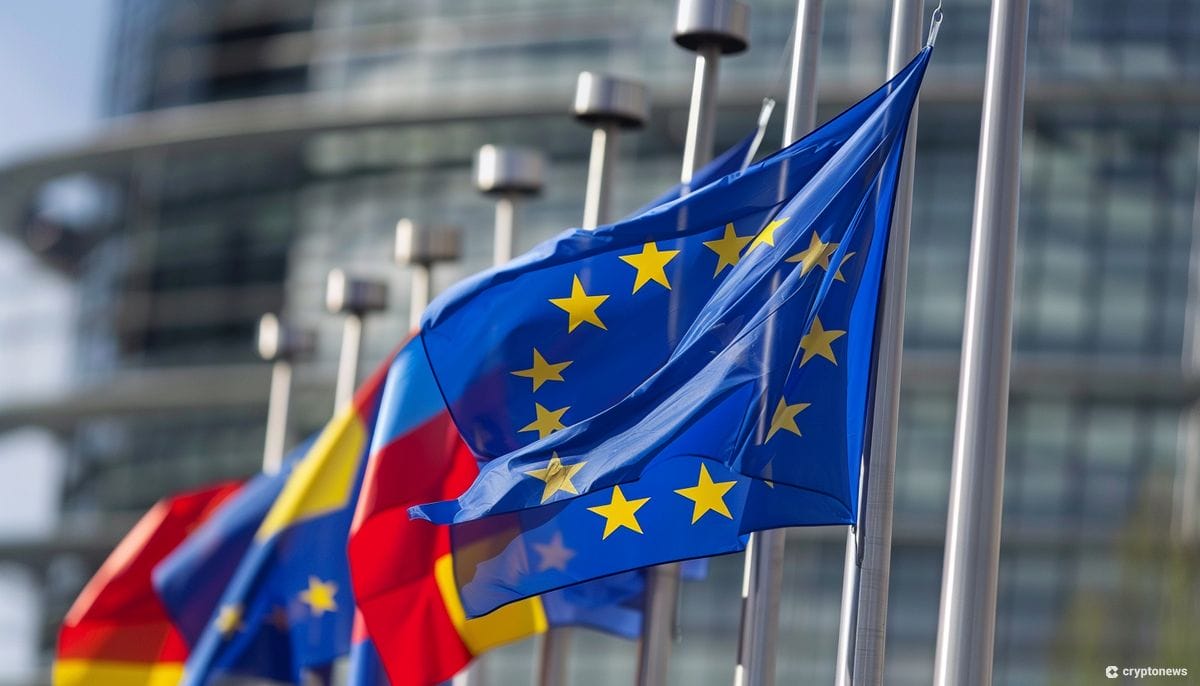
The European Union (EU) has formally passed a new anti-money laundering regulation (AMLR), applicable to all crypto-asset service providers (CASPs).
The laws would provide more powers to Financial Intelligence Units (FIUs) to detect and combat money laundering and terrorist financing.
Per a Wednesday’s announcement, the package of legislations would impact crypto exchanges, brokers, regulated under MiCA (Markets in Crypto-Assets Regulation). These laws include “enhanced due diligence measures,” after which, obliged entities including crypto-asset managers must report suspicious activities to FIUs.
“If you want to use a CASP though for buying goods & services with crypto, even outside of a regular business relationship, this CASP will need to perform customer due diligence on you – meaning verify your identity + potential additional KYC/AML measures if the transaction is above €1K,” says Patrick Hansen, Circle’s EU Strategy and Policy Director, wrote in a Tweet.
11/ If you want to use a CASP though for buying goods & services with crypto, even outside of a regular business relationship (so-called occasional transaction), this CASP will need to perform customer due diligence on you – meaning verify your identity + potential additional… pic.twitter.com/2gjTB1y0c6
— Patrick Hansen (@paddi_hansen) March 24, 2024
Furthermore, a new body – Authority for Anti-Money Laundering and Countering the Financing of Terrorism (AMLA) – will be established in Frankfurt. This entity will supervise the new legislation on combating money laundering, the announcement read.
The Council hasn’t formally adopted the law yet and awaits publication in the EU’s Official Journal, it added.
Hansen wrote a series of Tweets, explaining how the legislation package impacts crypto asset service providers in the EU.
He started with blaming false news that the crypto media carried before announcing EU’s ban on anonymous crypto transactions. He further confirmed that the new AMLR law “is not a crypto regulation.”
“It’s a broad AML/CFT framework that applies to institutions, so called “obliged entities” (OEs). All financial institutions, including CASPs (crypto-asset service providers), are OEs.”
2/ First things first: The AMLR is not a crypto regulation.
It’s a broad AML/CFT framework that applies to institutions, so called “obliged entities” (OEs). All financial institutions, including CASPs (crypto-asset service providers), are OEs. But also non-financial institutions…
— Patrick Hansen (@paddi_hansen) March 24, 2024
What is New for CASPs Under EU’s AMLR?
EU has already mandated CASPs to follow standard KYC/AML procedures like customer due diligence (CDD) under existing anti-money laundering framework.
Hansen noted that there is nothing new under the new law which changes the already existing rules for CASPs. These include prohibition of services to anonymous users by custodial crypto businesses, prohibiting CASPs to provide accounts for privacy coins, among others.
“As such, this is nothing new either. Previous versions of the proposed AMLR proposed a way stricter approach that would have meant a KYC on the self-custody originator/beneficiary but also thanks to industry efforts a risk-based approach with various options was finally agreed on.”
However, the change is, the Parliament previously proposed an amendment to limit merchant payments from a self-custody wallet to €1K.
“This has been removed from the final, agreed on version,” wrote Hansen. “Therefore, you will be able to use your self-custody wallets for buying goods/services in the EU without any restrictions.”
Credit: Source link



